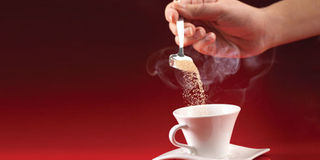Breaking News: At least 10 feared to have drowned in Makueni river
Cancer link: Why you should avoid sugar-laden drinks

Sugar-sweetened beverage consumption behaviour varies across cancers and may be related to age. PHOTO | FILE
What you need to know:
- People with no cancer history had a higher sugar intake than cancer survivors, although this could be due to other factors including older age and gender.
- The sugar intake from sugar-sweetened beverages among women with cervical cancer history was much higher – 60g/day – compared to other cancer survivors who consumed only around 30-40 g/day.
A study conducted by researchers at Louisiana State University (LSU) Health New Orleans in the US suggests that age is an important factor in the association between cancer and sugar-sweetened beverages, the public and academic health sciences centre said.
As more people are surviving cancer, the consumption of added sugar will be an increasingly important risk factor.
“Recently growing evidence suggests a link between sugar-sweetened beverage consumption and the risk of pancreatic and endometrial cancer, as well as the risk of colon cancer recurrence and death among cancer survivors,” says the study’s senior author Melinda Sothern, who teaches public health at LSU Health New Orleans.
Researchers examined data from 22,182 adults from the US National Health and Nutrition Examination Survey 2003-2012 data.
For the overall study population, 15.7 per cent had high sugar intake from sugar-sweetened drinks. People with no cancer history had a higher sugar intake than cancer survivors, although this could be due to other factors including older age and gender. The sugar intake from sugar-sweetened beverages among women with cervical cancer history was much higher – 60g/day – compared to other cancer survivors who consumed only around 30-40 g/day.
The research team also found that individuals who had high sugar intake – more than or equal to 80g/day sugar – from sugar-sweetened beverages were younger, male, black, obese, current smokers, of low-income, or had education levels at or below secondary school.
The results of the study indicate that sugar-sweetened beverage consumption behaviour varies across cancers and may be related to age.
The researchers suggest that intervention programmes to reduce sugar-sweetened beverage or added sugar consumption should primarily focus on young males of low socio-economic status, both people who do not have cancer and cancer survivors, as well as cervical cancer survivors.
The study is in this month’s issue of the Translational Cancer Research journal.





